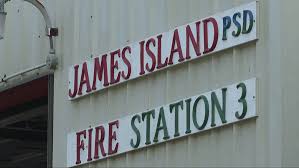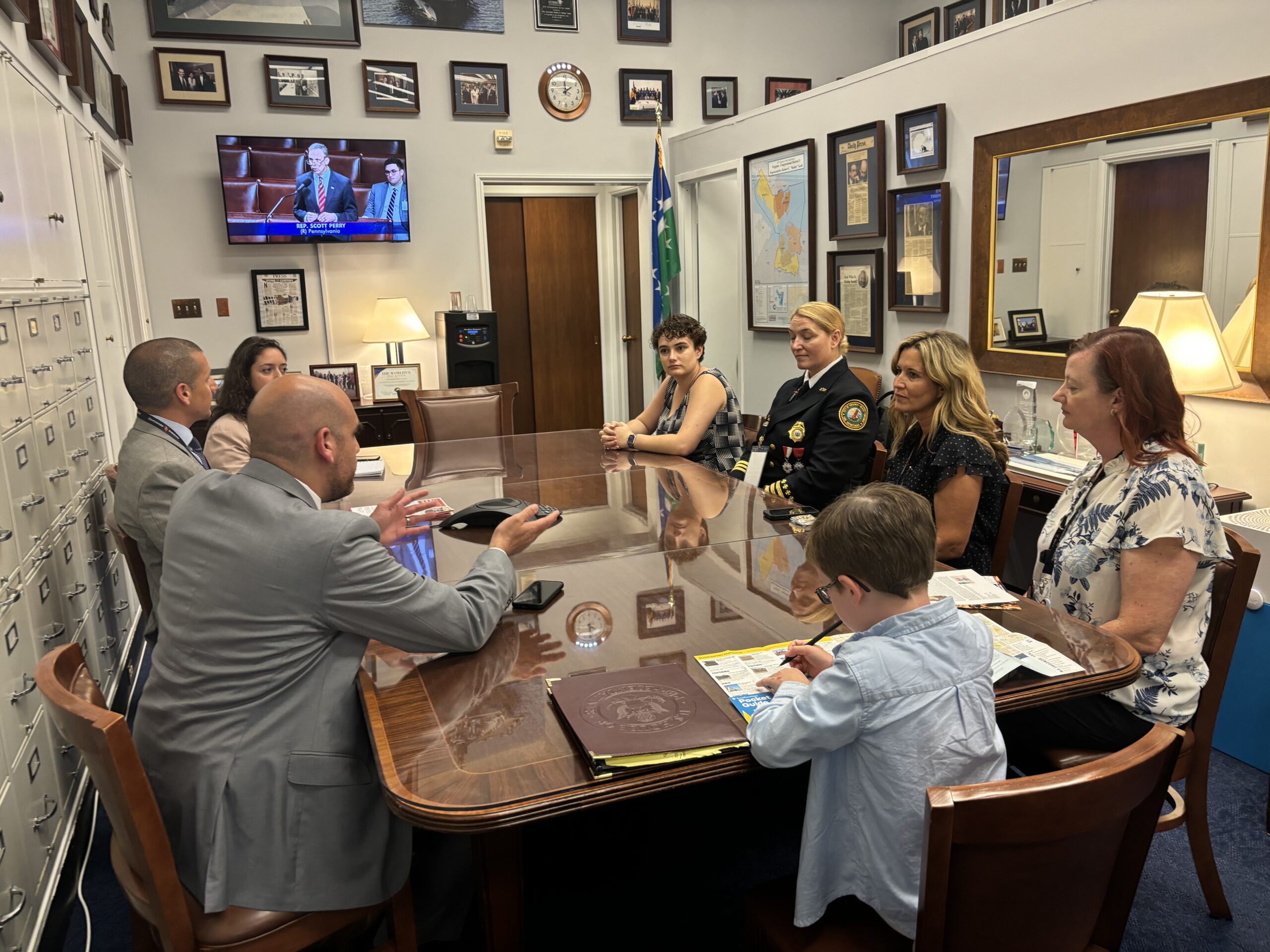From the Summer 2022 issue of Fire Fighter Quarterly
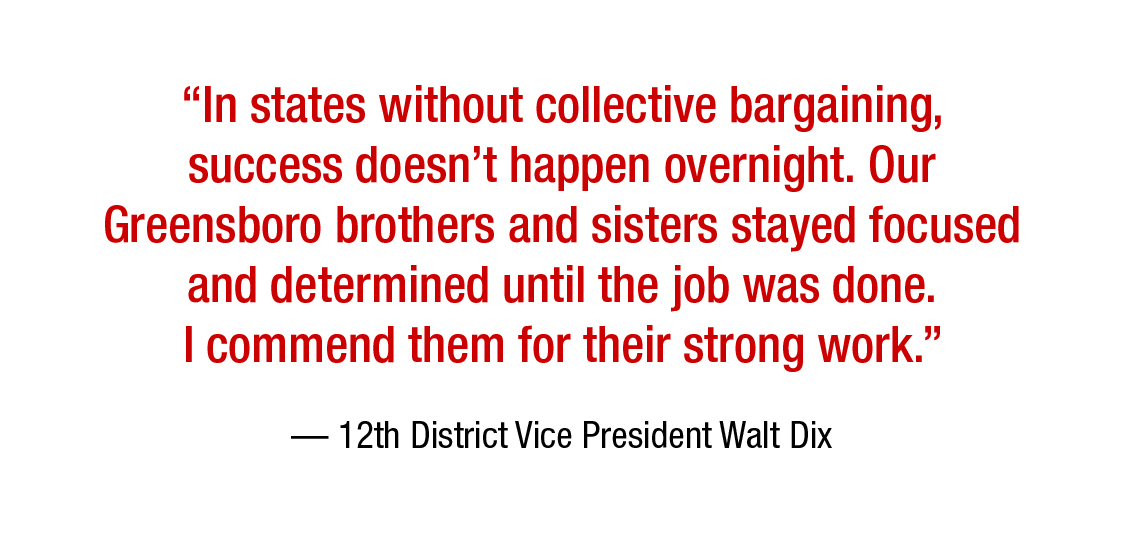 Greensboro, NC Local 947 is among a growing number of locals that continue to think outside the box in representing the interests of their membership and fighting for better wages, working conditions and benefits. Just recently, Local 947 won the largest compensation victory in the union’s history. This became possible after eight years of educating decision makers, compiling data, relationship building and political action.
Greensboro, NC Local 947 is among a growing number of locals that continue to think outside the box in representing the interests of their membership and fighting for better wages, working conditions and benefits. Just recently, Local 947 won the largest compensation victory in the union’s history. This became possible after eight years of educating decision makers, compiling data, relationship building and political action.
“In states without collective bargaining, success doesn’t happen overnight,” says 12th District Vice President Walt Dix. “Our Greensboro brothers and sisters stayed focused and determined until the job was done. I commend them for their strong work.”
“When fighting for fair wages, benefits and safe working conditions in a state that doesn’t allow collective bargaining, it is like you are constantly rolling the boulder up the hill,” says Greensboro Local 947 President Dave Coker. “You always have to be ‘on.’ You are always advocating for your members.”
Meanwhile, at the federal level, the IAFF continues to work tirelessly to pass the Fire Fighters and EMS Employer-Employee Cooperation Act (HR 2586/S 2178). The legislation, which has more than 200 bipartisan cosponsors in the House and seven cosponsors in the Senate, seeks to require all states to adopt legislation to allow fire fighters and EMS personnel to form a union, collectively bargain over working conditions and sign legally enforceable contracts that protect the rights and benefits of fire and EMS personnel. The IAFF is hopeful that Congress will vote on the bill before the 117th Congress closes at the end of this year.
In North Carolina, where it was illegal to form a union and collectively bargain, Local 947 was forced to disband for 10 years until the law was changed to allow unions, but still without collective bargaining.
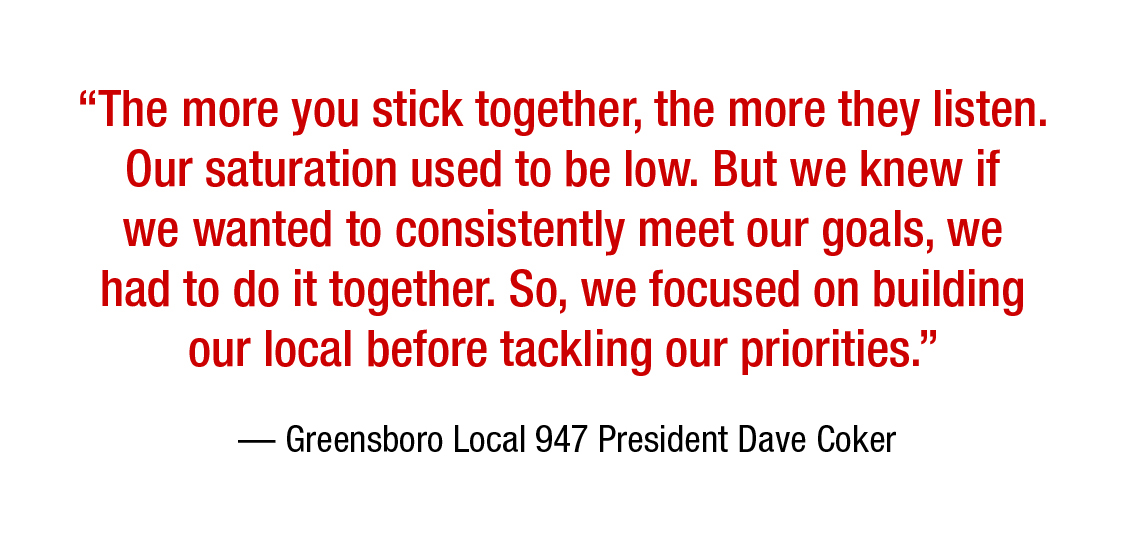
“The more you stick together, the more they listen,” says Coker. “Our saturation used to be low. But we knew if we wanted to consistently meet our goals, we had to do it together. So, we focused on building our local before tackling our priorities.”
To gather support for four-person minimum staffing, Local 947 members won the support of the city council and the public after explaining how staffing at that level would lead to improved public safety.
The push to establish adequate compensation, however, was more involved. The first step Local 947 took was to tap into IAFF resources, including requesting a Municipal Financial Analysis (MFA), a detailed report that reveals the true financial health of a municipality.
Local 947 leaders also did their own research into the city’s revenue stream and the city’s policies on how incoming money is used. Additionally, Greensboro members built relationships with local elected leaders through political action and community involvement.
As a result, City Manager Taiwo Jaiyeoba agreed to discuss the need for significant wage increases but would only agree to a 3% raise to reflect market adjustment and a 4% increase to reflect needed merit (step) adjustments. But with the support of five of the seven city council members, the council told the city manager it would not vote in favor of the budget if it did not include increased fire fighter compensation.
The new compensation package includes raises between 5% and 16.1%, depending on rank and other considerations, effective September 2022. In May 2023, salary adjustments include another 4% increase between steps.
Great progress is also being celebrated in Texas, where Mission Local 3609 leaders have spent the last 18 years advocating for its members, being politically active and earning public support.
Now with a supportive mayor and city council, the Mission Fire Department will undergo a significant transformation in the coming months as it converts from a fire and rescue department to a fire-based EMS department. An impressive list of new resources comes with this transformation, including additional personnel, EMT training, new apparatus and gear.
“Nothing has come easy for our Mission Local 3609 brothers and sisters,” says 11th District Vice President Sandy McGhee. “Even when the hills looked too steep to climb, our Local 3609 members just kept climbing. It’s that determination and unwillingness to give up that makes them successful.”
“Sometimes it takes a long time and sometimes you have to take some hits,” says Local 3609 President Mike Silva. “That’s just how the game is played. You cannot give up.”
Texas fire fighters are allowed to collectively bargain if the local government agrees to adopt the provisions of State Statue 174 and if voters approve via ballot referendum. But when Local 3609 tried to get collective bargaining in 2010, the voters rejected the idea, siding with opponents who called Mission IAFF members union thugs.
Without collective bargaining, progress has been slow, but steady.
The first priority for Local 3609 in 2004 when it formed was establishing civil service, a system that allows for the development and enforcement of rules regarding the initial selection of employees, as well as for their advancement, benefits, potential disciplinary actions and conditions of employment.
Through political action, Local 3609 earned the support of the city council and the voters, earning its first big victory as a local. Drawn by the benefits of civil service, the Mission Fire Department and Local 3609 grew, adding 12 new fire fighters to the department (with help from a Staffing for Adequate Fire and Emergency Response (SAFER) grant).
While the Mission City Council became increasingly labor friendly, thanks to Local 3609 members’ efforts, the city’s anti-labor mayor of several years made getting anything done difficult, if not impossible.
When Mission Local 3609 supported fire fighter-friendly mayoral candidate Norie Garza, she became an advocate for fire-based EMS after she lost her husband in 2016 to an auto-pedestrian accident. The private ambulance company was slow to respond. She believes that had cross-trained fire fighter-EMTs responded, her husband would have had a better chance at survival.
Garza was sworn in in June 2022 and is already making good on her promise to establish fire-based EMS with the accompanying resources.
Another victory is at hand in an area where collective bargaining is prohibited – in Huntsville, Alabama, where Local 1833 has been engaged in a long fight over equitable pay.
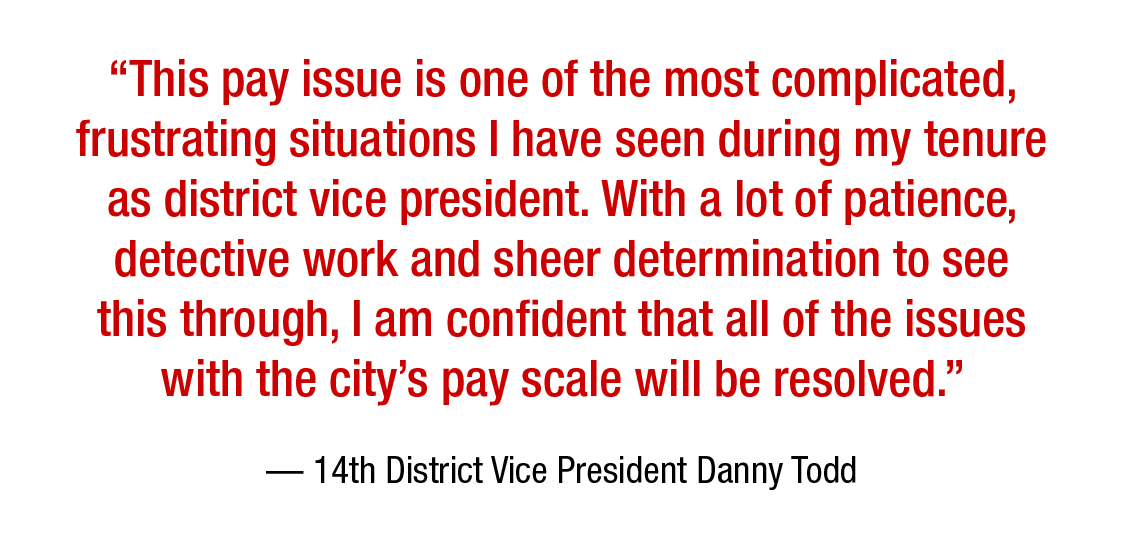
In 2019, the city manager created and implemented a new pay scale for city employees. The old 16-step plan had steps/employee advancements that did not include a pay raise; however, the new plan includes 25 steps with all including an increase.
In theory, this would be an improvement. But the plan’s creators did not take into consideration how the differences in pay raise percentages, seniority and other variables would result in fire fighters with less seniority making more than fire fighters with greater seniority, as well as other wage discrepancies.
“We did not know how complicated the problem was until we took a deep dive into the plan and the way it was being implemented,” says Local 1833 President Hunter Robinson. “The more we looked into it, the less sense any of it made. But we have remained determined not to lose our patience and conduct ourselves in a professional manner until we can be sure our members are being compensated correctly.”
In 2020, Local 1833 leaders discovered 53 drivers were paid incorrectly due to the discrepancies created by the new plan. Local 1833 President Robinson and Vice President Paul Crumbley explained the situation to the fire chief who was able to work to correct the issue for those drivers.
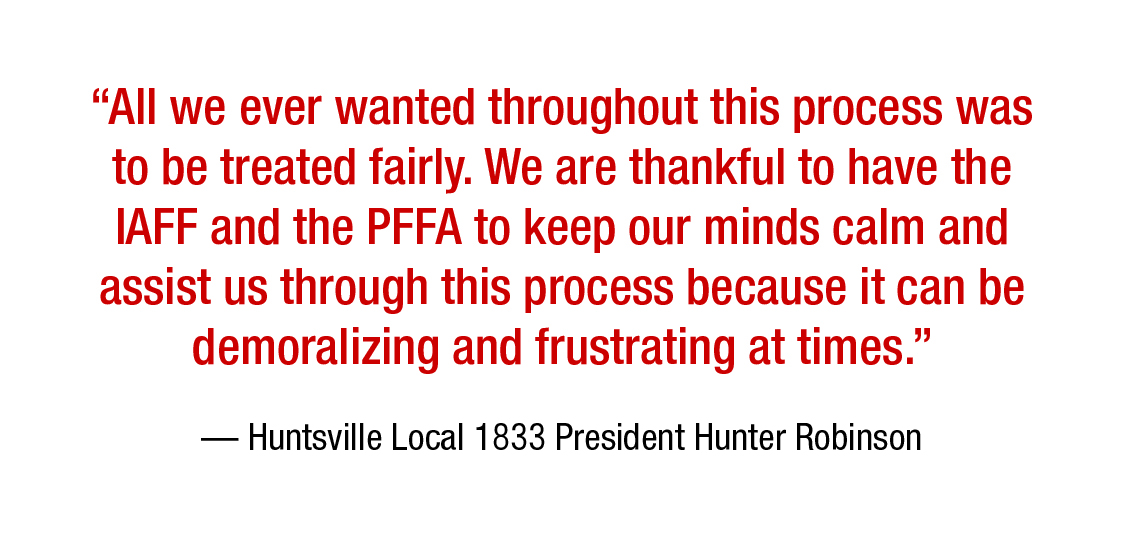
With guidance from District Vice President Danny Todd and Professional Fire Fighters of Alabama (PFFA) President David Harer, Local 1833 presented its full findings (186 pay inequities and issues that needed to be resolved to prevent future issues) to the fire department management and later to human resources. Both reacted with shock and disbelief. Local 1833 members are hopeful the remaining issues will be resolved favorably as management is taking the local’s findings seriously.
“All we ever wanted throughout this process was to be treated fairly,” says Robinson. “We are thankful to have the IAFF and the PFFA to keep our minds calm and assist us through this process because it can be demoralizing and frustrating at times.”
